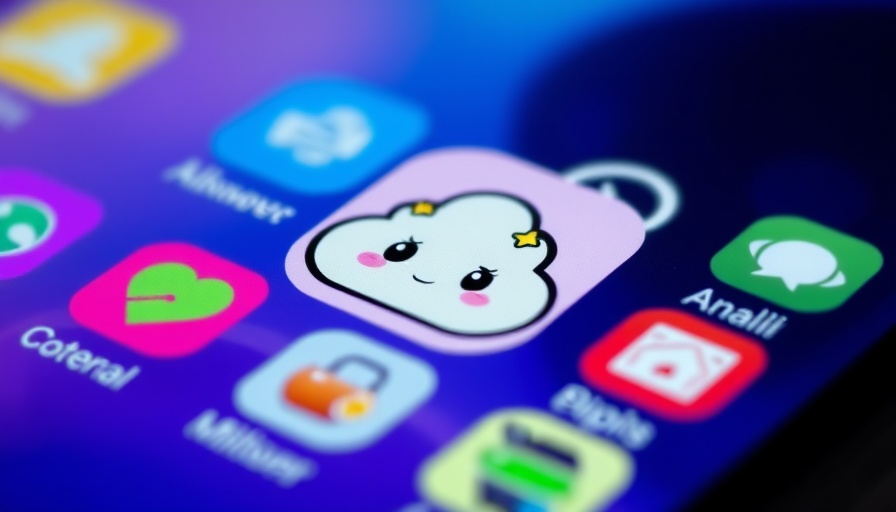
OpenAI's Sora Makes a Stunning Debut in the App Market
In an astonishing show of popularity, OpenAI's Sora video generation app surpassed 1 million downloads in just under five days after its late September launch. This rapid uptake illustrates not only the appetite for AI-driven entertainment technologies but also reflects broader trends in how we consume short-form content. According to Bill Peebles, head of Sora, the app even outpaced the initial downloads achieved by ChatGPT, which currently supports 800 million weekly users.
The Appeal of AI-Generated Content
Sora's main draw lies in its user-friendly design. By simply typing a prompt, users can generate videos tailored to their creative desires. The app's simplistic approach demystifies video creation, making it accessible even for those with no prior experience in content production. The ease of generating short videos could be a significant factor in its swift popularity, as many users wish to express themselves via engaging video content.
backlash from Industry Leaders
Despite its success, Sora has not been without controversy. Organizations like the Motion Picture Association (MPA) have voiced concerns regarding copyright infringement, alleging that the app allows users to generate content that includes recognizable characters from popular media franchises like "SpongeBob SquarePants" and "Rick and Morty." Charles Rivkin, CEO of the MPA, emphasized the necessity for OpenAI to address these copyright issues in order to safeguard creators' rights.
OpenAI's Response: Balancing Innovation and Copyright
In light of these criticisms, OpenAI's CEO, Sam Altman, has promised to enhance the app by providing rights holders with more control over character generation. This move aims to create a balance between fostering innovation in AI-driven content and adhering to established copyright laws. During a briefing at the company’s recent DevDay event, Altman acknowledged users' concerns about the app’s limitations and encouraged patience as the company works on refining Sora's capabilities.
The Future of AI in Content Creation
The rapid growth of Sora raises critical questions about the future of AI in content creation. As more individuals leverage AI technologies to generate videos and other media, we must consider how copyright laws will evolve to accommodate this changing landscape. Furthermore, the quick success of Sora hints at a potential shift in consumer behavior towards AI-generated media, suggesting companies should prepare for similar waves in their markets.
What This Means for AI Enthusiasts
For AI enthusiasts, Sora serves as a fascinating case study of how emerging technologies can disrupt traditional content creation paradigms. The app's success is a testament to the transformative potential of AI tools that make creative processes more democratic. However, as users embrace these innovations, it’s essential to engage in ongoing dialogues about ethical considerations, copyright issues, and the responsibilities of AI developers.
In conclusion, while Sora represents an exciting advancement in AI technology, it also underscores the importance of navigating the regulatory landscape that governs creative content. As OpenAI develops solutions to balance user creativity with the rights of original creators, AI enthusiasts will undoubtedly be watching closely to see how these dynamics unfold.
As discussions about copyright and innovation evolve, it’s crucial for both creators and consumers to stay informed about how these changes may shape the future landscape of digital content generation.
 Add Row
Add Row  Add
Add 




Write A Comment